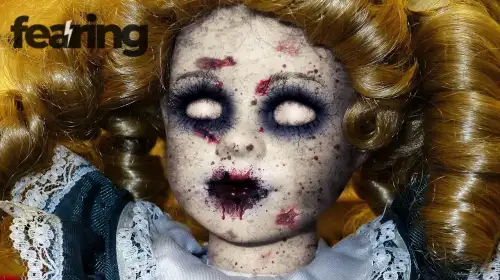Phobias are often dismissed as quirky fears or personality traits, but in reality, they can cast long, disruptive shadows over a person’s entire life. From morning routines to romantic partnerships, friendships, work, parenting, and even leisure—phobias seep into every corner of daily living. Their effects ripple outward, shaping not just the person who holds the fear, but also those who share their world.
"A phobia doesn't just change how you feel—it changes how you live."
In this in-depth guide, we’ll explore how phobias impact everyday decisions, social interactions, mental health, and personal connections. By understanding these effects, we can move from judgment to empathy—and from struggle to healing.
What Is a Phobia and Why Does It Matter in Daily Life?
A phobia is an intense, irrational fear of a specific object, situation, or activity. Unlike ordinary fear, phobias are persistent and often lead to avoidance behaviors that interfere with normal functioning.
Whether it’s a fear of flying (pteromerhanophobia), dogs (cynophobia), crowded spaces (agoraphobia), or social judgment (social phobia), the real issue isn’t the object—it’s how much control that fear takes away from the person’s life.
How Do Phobias Disrupt Daily Routines?
Phobias can alter even the simplest parts of daily life:
Commute avoidance: Fear of tunnels, bridges, or public transport can limit mobility
Hygiene and grooming: Phobias related to contamination may lead to obsessive rituals
Medical care: Trypanophobia (fear of needles) can prevent necessary treatments
Sleep patterns: Nightmares and anticipatory anxiety can cause insomnia
Food and shopping: Fear of public spaces may restrict grocery shopping or eating out
These interruptions are not minor inconveniences—they reshape entire lifestyles.
How Do Phobias Influence Mental Health?
Phobias rarely exist in isolation. Their ongoing presence can contribute to:
Generalized Anxiety Disorder (GAD)
Panic attacks
Depressive episodes
Obsessive-compulsive behaviors
Social isolation and loneliness
Living with a phobia can create a cycle of fear and shame. Avoidance leads to missed experiences, which leads to regret or low self-worth, which deepens the anxiety—and the loop continues.
"Fear shrinks your world. And the smaller it gets, the harder it is to breathe."
How Do Phobias Affect Relationships?
1. Romantic Relationships
Planning limitations: A partner with a travel phobia might avoid vacations or even road trips
Intimacy challenges: Social or body-related phobias can interfere with closeness
Communication strain: Repeated avoidance may lead to frustration or misunderstanding
Supportive partners often feel helpless or overwhelmed, especially if they don’t fully understand the phobia.
2. Friendships
Limited social engagement: Someone with social phobia may skip gatherings or ignore invitations
Fear of judgment: They may avoid deeper connection or vulnerability
Peer pressure: Friends who don’t understand may unintentionally push boundaries
Over time, friendships can fade—not out of disinterest, but out of fear.
3. Parenting
Transmission of fears: Children often absorb their caregiver’s anxieties
Restricted experiences: A parent with agoraphobia may avoid school events or playgrounds
Emotional distance: Parents coping with phobias may struggle to be emotionally available
4. Work Relationships
Avoidance of certain tasks or meetings
Fear of public speaking or presentations
Difficulty with travel or relocation
Performance anxiety
This can affect promotions, teamwork, and job satisfaction.
Can Phobias Lead to Isolation?
Absolutely. Avoiding feared situations often means avoiding people. Over time, this leads to:
Decreased social support
Increased reliance on technology for interaction
Loss of confidence in social skills
Depression linked to disconnection
Many people with phobias describe feeling trapped—not just by their fear, but by their growing distance from the world.
How Do People Cope—Productively or Not?
Coping strategies vary. Some are healthy, others are harmful:
Healthy Coping:
Therapy (CBT, exposure therapy, ACT)
Mindfulness and breathing techniques
Support groups or online communities
Unhealthy Coping:
Substance use to mask symptoms
Rigid routines that prioritize avoidance
Self-isolation
Understanding these patterns is key to supporting someone’s recovery journey.
Can Loved Ones Help Without Enabling?
Yes. The line between support and enabling is subtle, but vital.
Helpful Behaviors:
Listening without judgment
Encouraging treatment
Learning about the phobia
Celebrating small progress
Unhelpful Behaviors:
Pushing too hard or too fast
Dismissing the fear as silly or dramatic
Making the person feel like a burden
"Support doesn’t mean fixing—it means walking beside."
How Can Someone Rebuild Their Life While Living with a Phobia?
Living with a phobia doesn't mean giving up joy, connection, or growth. It just requires intentional strategies:
Create a safe daily structure that includes gentle exposure
Communicate openly with loved ones about limitations and progress
Set goals that stretch comfort zones incrementally
Celebrate wins, no matter how small
Access professional help early and consistently
Therapy doesn’t eliminate fear overnight—but it can empower people to live fully with it.
Final Thoughts
Phobias don’t just make people afraid—they make them feel alone, misunderstood, and sometimes, ashamed. But awareness is a powerful antidote. When we recognize the weight that phobias carry, we can stop judging and start helping.
No one should have to navigate fear alone. With empathy, treatment, and time, even the most disruptive phobias can loosen their grip.
“Phobias may steal comfort, but they don’t have to steal life.”

